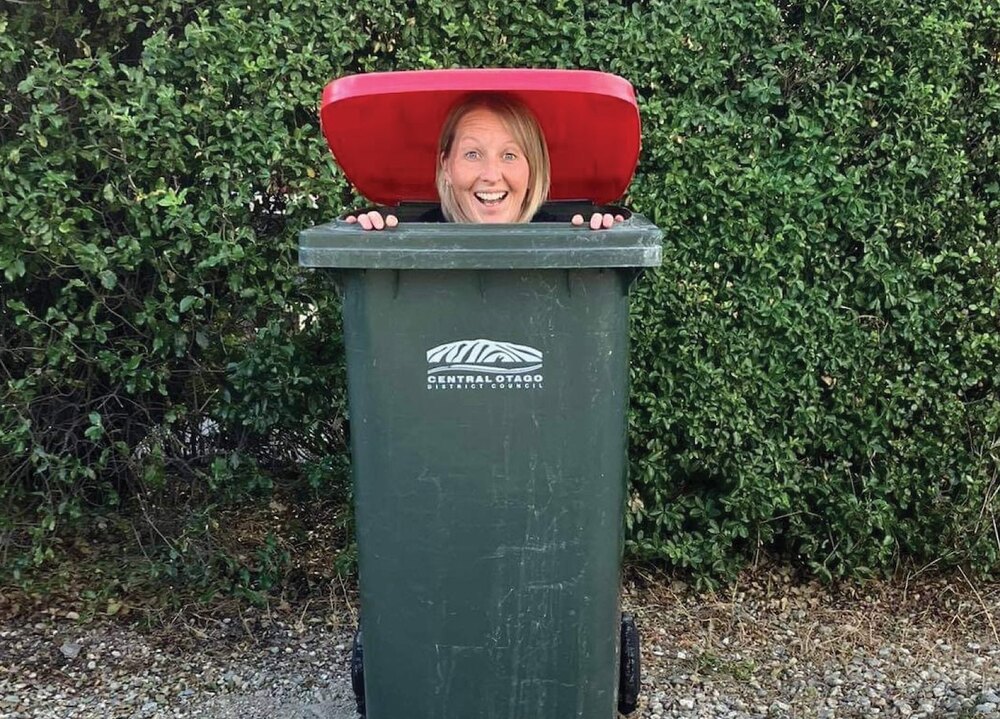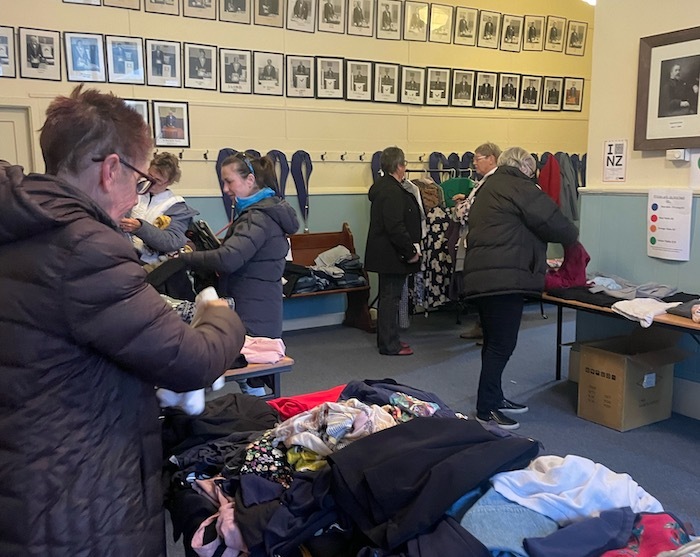Households to ‘think differently’ about waste
Anna Robb
09 June 2023, 6:00 PM
 Industry Lane’s Emily Ludlow with the ‘Chunky’ cups for reuse and purchase. PHOTO: The Central App
Industry Lane’s Emily Ludlow with the ‘Chunky’ cups for reuse and purchase. PHOTO: The Central AppWith smaller red waste bins imminent, the Central App has compiled ways to reduce waste for households.
Central Otago district mayor Tim Cadogan said he did simple things to reduce waste.
“I am an avid composter and get a real kick out of turning kitchen waste and lawn clippings into high quality soil. Our green bins will make that less necessary but I will still be doing it.
“The other thing is to be really conscious of the packaging on products and making decisions with that as a significant factor. When we buy milk, it is in a glass bottle. When I buy beer it is almost always in cans not bottles.”
Central Otago District Council councillor Sarah Browne, together with her family of six, did a waste audit and is a champion for minimising waste.

Councillor Sarah Browne PHOTO: Supplied
She said understanding what you are throwing away is the starting point.
Her mantra is to “actively control takeaway containers and single use plastics or disposable packaging”.
When her family has takeaways they bring their own containers to the restaurant, she buys household items such as toilet rolls, washing powder and yoghurt in bulk.
“[It’s] cheaper, I try to buy on special, [and] significantly less packaging for the amount of those things we use.”
Sarah also uses sustainable solutions for children’s lunchboxes.
“I invested in silicone muffin cases and reusable (wax wrap and small containers) food wrap options for the kids' lunch stuff, so there's no glad wrap or sandwich bags.
“I find not giving the kids the opportunity to create too much waste works well for them.”
CODC waste minimisation officer Abi Hawkins said those who do not currently compost at home or perhaps chuck out leftovers can “think about things differently” to minimise household waste.
She said looking at the packaging on products was a good start.
“Some red tomato sauce bottles are not recyclable, for example.
“You can switch to a clear one, that is recyclable, and reuse it by refilling it from a tin.”
Lots of extra uses can be found for things like bread bags and ice cream containers, to contribute to keeping items out of landfill for longer.
“You can use them to store leftovers, or refreeze things in.”
Reducing clothing going to landfill is another way for households to “do what they can”, according to Abi.
The Clyde School Parent Teacher Association (PTA) ran a pop-up recycled clothing shop at the Masonic Lodge over King’s birthday weekend.

Locals at the Clyde School PTA pop-up shop. PHOTO: Supplied
A range of women’s and children’s clothes were donated by the community and $1000 was raised.
PTA spokesperson Charlotte Waite said it lined up with the schools’ values around respecting our environment and promoted people reusing clothes rather than supporting fast fashion.
Despite Wastebusters closing soon, which Abi said she is “gutted” about, there are lots of options for recycling clothing including local buy/sell pages, opportunity and charity shops, or running workplace or community group swap events.
From July 1, single use produce bags and other plastic items will be banned by the government, so it is time to think about alternatives to use at the supermarket or store (your own reusable produce bags).
The Central App will publish a series on waste minimisation in the coming weeks, including what local businesses are doing.
If you’ve got a clever waste minimisation hack to share email: [email protected]
Read more: Three rubbish bins to become four.
NEWS
JOBS
WHAT'S ON






